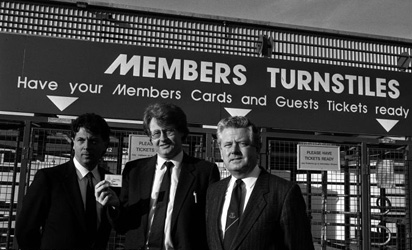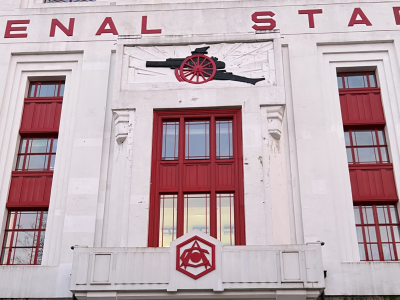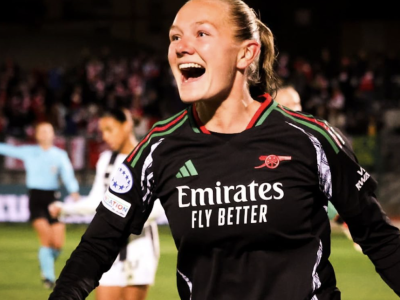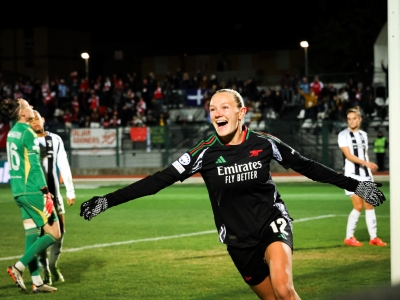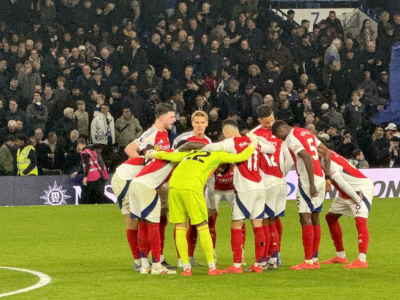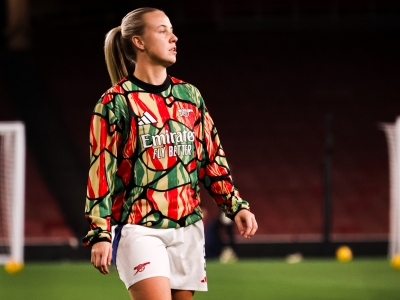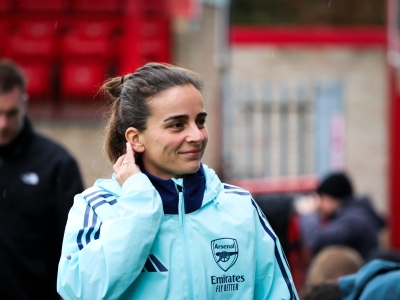According to football’s great folk myth, ‘Year Zero’ on the birth of modern football was the start of the 1992/93 season. People can be forgiven for asserting that, since that was the year when the top division officially broke away from the rest of the Football League and when the ‘First’ Division no longer referred to the first division. It was also the year that live top-tier football left terrestrial TV for Sky and never returned. Murdoch’s satellite TV network also changed forever how football was presented on the small screen and, with its own dedicated sports channel, Sky offered more hours of football than the terrestrial channels were previously prepared to give to sports coverage.
In 1992, top clubs also began to demolish their terracing in order to comply with the recommendations of the Taylor Report, which brought with it the era of all-seated stadia and the end of relatively cheap match day attendance. However, though received wisdom would deem this to be the point where football changed forever, it isn’t actually the case. The real origins of modern football came just a few years before this point and were in fact to be found in the summer of 1988. Off the pitch, the popular press referred to this period as the ‘Second Summer of Love’ with Acid House mania breaking out across the country. There was, however little love within the football world, which very nearly descended into a state of infighting and civil war among those who ran the game in England.
What sparked the whole thing off was a meeting at a Japanese restaurant between three men. One was Greg Dyke – recently appointed the FA Chairman, but at this point head of LWT and most famous for saving breakfast TV station TVAM with Roland Rat. Another was former TISWAS host Trevor East – who by 1988 was the Deputy Chairman of ITV Sport. The final member of the trio was Arsenal Vice Chairman David Dein, who by this point was the rising star of football administration and a prominent member of the Football League Management Committee. Central to the conversation between the three men was the fact that an exclusive TV deal between the Football League and fledgling satellite television company, British Satellite Broadcasting (BSB), looked imminent.
Those were the days prior to the company’s merger with, and effective takeover by, Rupert Murdoch’s Sky Television - in fact it was also that summer that Murdoch announced Sky’s formation, although sport seemed to play no part in Murdoch’s early plans for the network (unless of course you count WWF wrestling, which filled the void created by Greg Dyke’s axing of the British version after 33 years on ITV). As Dyke would later admit, the motive behind this meeting was that ‘I wanted to pinch the football rights from BSB’s grasp’. To give you some idea as to how the goalposts had shifted in 1988, it’s important to know the details of the prior TV deal which the Football League entered into.
In January 1985, the BBC and ITV – acting as a cartel with regard to TV rights as they had for the previous 20 years – had collectively offered £19m over four years for exclusive TV rights. The Football League chairmen, who felt that the true value was closer to £90m, were incensed. The late and infamous Robert Maxwell went as far as calling the TV companies’ joint offer ‘Mad, Bad and Sad’. However, the Football League chairmen seemed not to appreciate that their bargaining position was weak while the only two companies bidding were not inclined to offer separate bids. As well as being left with Hobson’s choice, 1985 turned out to be football’s ‘annus horribilis’ with a string of damaging incidents in the months to follow, which included the infamous riot involving Millwall fans at Kenilworth Road, the Bradford fire and the Heysel disaster.
Football became a pariah sport, referred to in a Sunday Times editorial as ‘slum sport played in slum stadiums watched by slum people’ and, to make matters worse, TV had other sporting options to pursue with Barry McGuigan’s world title boxing fights, Torvill and Dean’s Olympic Gold in 1984, and Dennis Taylor’s 1985 World Snooker Championship win, which all reached around the twenty million viewer mark, compared with football’s then weak average of around six million. The broadcasters imposed a deadline of 2nd June – just three days after Heysel - for the clubs to accept a deal for TV coverage the following season. Football League chairmen ignored this and, as a result, there was a football blackout for the first half of the 1985/86 season.
The League’s stance however was lunacy, as the revenue streams of perimeter advertising and shirt sponsorship now meant that football was reliant on television coverage, as shown by the League’s sponsor, Canon, announcing that they would not be renewing their deal on expiry at the end of the 1985/86 season. By Christmas Eve of 1985, the League caved in and agreed a deal for TV coverage until the end of the season (the first such game shown was the highlights of Arsenal’s FA Cup 3rd Round encounter with Grimsby Town). The TV companies, however, taught football a lesson. From the start of the 1986/87 season, the League were forced to accept just £6.2m for TV coverage over the next two seasons – a figure even worse than that offered twelve months previously.
On expiry of this deal, however, the introduction of satellite television was a game- changer. In 1988, satellite TV was yet even to be introduced in the UK. BSB, though granted a licence to broadcast, were yet even to take to the air and, as it turned out, didn’t for another two years. What they needed was something to entice subscribers, and the exclusive rights to league football was exactly that. BSB’s initial proposal was to form a company with the Football League and possibly the Football Association that would control the rights to all football on British television and sell them to any buyers worldwide, including the BBC and ITV. The Football League in turn would have received £10m a year over ten years rather than the £3.1m they received at the time.
According to Ken Bates, speaking twelve years later, ‘clubs voted 91-1 in favour of a joint venture with BSB which involved the clubs in no risk… that deal would have meant football taking 51 per cent of the profit all down the line, advertising and distribution and subscriber fees. Furthermore, football would have got a share of all other sports as well’. Not one to be outmanoeuvred, Greg Dyke’s idea was to deliberately target what were known as the ‘Big Five’ clubs of Arsenal, Tottenham Hotspur, Everton, Manchester United and Liverpool – so called because they were either the most successful or the most supported clubs of the time and were guaranteed ratings-winners.
Over the course of the following weeks, Dein, Dyke and East agreed that the plan was to offer the Big Five £1m a year for exclusive coverage of their home games – a figure at that time which was far in excess of what they had received previously. As Dyke would later remark ‘the Football League could sell the rest of the First Division matches to whomever they wanted, but of course, without the big clubs’ home games, they were worth much less’. A subsequent meeting was then arranged between Dyke, David Dein and the four chairmen of the other big five clubs. Dyke immediately admitted to the chairmen present the previous cartel that they had long suspected had been in operation and, as Dyke described, ‘from that moment on all five were on my side’.
However, the Football League had got wind of the plan at their AGM in June of that year and were quick to remind the ‘Big Five’ that any televised league football required their seal of approval and that they would not back any separate deal between the ‘Big Five’ and ITV. A further plan therefore was then hatched for a ‘Super League’ breakaway from the Football League with another quintet of Aston Villa, Newcastle, Nottingham Forest, Sheffield Wednesday and West Ham. In fear of the breakaway becoming a reality, the Football League requested an amendment to the BSB deal for 80% of the final amount to accrue directly to the First Division.
By August, however, BSB had pulled out of the deal citing dissatisfaction at the way football clubs went about their business and instead pursued a separate deal with the BBC to exclusively show the FA Cup and England internationals. The ten clubs who threatened a breakaway instead agreed to retain the certainty of the Football League’s structure, possibly fearing for the viability of their proposed ten-team Super League. In turn, they were to receive much less than the £1m a season each that ITV offered them. However, the resulting deal was weighted heavily in their favour. The final figure agreed on was £44m from ITV for exclusive coverage over four years.
The First Division’s share of the deal increased from 50% to 75%, with the second division receiving 12.5% and the lower two divisions receiving just 6.25% between them. The sum of TV money received by all First Division sides had dramatically increased from £1.5m to £8.25m per season; in comparison, the Second Division’s share only increased from £775,000 to £1.4m. Also, over the next four seasons, of the seventy five League matches that were to be televised on ITV, only eleven failed to show either Arsenal, Everton, Liverpool, Manchester United or Tottenham – giving the ‘Big Five’ an enormous advantage on the sponsorship front over the rest.
Although the top division’s breakaway from the Football League failed to materialise for another four years, the gap between the top tier and the rest had begun to appear from here on in. Since the signing of the 1988 deal, in only one season – 1989/90 - have all promoted sides from the previous season stayed up in the top division and all relegated sides from the previous season stayed down in the second tier. In comparison, the twenty five years that preceded the 1988 deal saw this occur on seven separate occasions. There had even been two instances of promoted sides winning the title the following season – Liverpool in 1964 and Nottingham Forest in 1977, a feat which is highly improbable today.
From this point on, the cartel which held down the price of football was now gone forever, but the share of the spoils was overwhelmingly weighted in favour of the top end of football. The following October, David Dein and Everton’s Philip Carter were kicked off the Football League Management Committee, mainly by an axis of Second Division clubs lead by Crystal Palace’s Ron Noades and Ken Bates of Chelsea (then languishing in Division Two), who accused them of serving their interests at the expense of the Football League as a whole. Ken Bates, speaking in 2000, still spoke bitterly of the failure of BSB’s 1988 bid, stating that ‘I look back more in sorrow than anger when I think of the wasted decade of lost progress, all for some selfish short-term opportunism’.
The annoyance of the ‘Big Five’ clubs at Dein and Carter’s removal from the Football League Management Committee has often been cited as the catalyst for the formation of the Premier League, which materialised just a few years down the line from this incident. However, what’s also interesting from a present-day Arsenal perspective is how the ‘Big Five’ clubs spent their windfall. As shown from this Saint & Greavsie preview for the season ahead, Liverpool spent £2.8m to bring Ian Rush back from Juventus after just one season and Manchester United opted to bring Mark Hughes home from two unhappy years at the Camp Nou in Gary Lineker’s shadow at Barcelona.
At the other end of the Seven Sisters Road, Spurs had signed Paul Gascoigne and Paul Stewart for a combined sum of £3.7m and Everton, as well as signing Pat Nevin from relegated Chelsea and Stuart McCall from Bradford City, also broke the British transfer record to steal Tony Cottee from Arsenal’s grasp. It had been a disappointing summer from an Arsenal point of view. In desperately seeking a new strike partner for Alan Smith, George Graham had also failed to land Kerry Dixon from a Chelsea side that had just fallen out of the top tier. What Arsenal eventually spent their new found income on was a Second Division centre half from Stoke – Steve Bould - for just £390,000 and some new corporate facilities with the hope of enticing a new breed of yuppie fan.
Arsenal had also lost a lot of experience over the previous two seasons. Between them, the outgoing Viv Anderson, Kenny Sansom and Steve Williams must have acquired more than 100 England caps, but, despite the drain on experience, we all know where the league title ended up at the end of that season. In the process, George Graham also wiped out £1m of debt that he inherited on taking the job in 1986. So, is this a vindication of the current board’s cautious spending? Well, the outcome of the 1988/89 season may well still influence the board’s thinking even to this very day, although it must be remembered that the young developing Arsenal side of 1989 were already winners by this point.
Winning the League Cup in 1987, being beaten finalists in the same competition the following year, and winning two ‘Mickey Mouse’ trophies in the form of the Wembley International Tournament (the nearest thing to taking on Europe’s best during the post-Heysel ban) and the Mercantile Credit Centenary Cup, gave a young developing side exposure in how to deal with one-off pressure games. This is a requirement if a side is to successfully challenge for a title (as Anfield the following May would testify) and was provided between 1986-88 in a way that a modern perennial race for fourth position certainly doesn’t – for an academic comparison think of it as the difference between one pupil primed for Grade C in coursework and another primed for Grade A in an exam.
The football world has moved on by leaps and bounds from the one David Dein set out to change twenty-five years ago, and the football economics of 2013 don’t give Arsène Wenger’s side the luxury of finishing sixth and learning from, and building on, a League Cup final defeat as George Graham’s side had done in 1987/88. Therefore, sadly, we now live in a football environment where experience of winning trophies has to be bought rather than developed in-house in a team that has no prior experience of winning trophies. Also, though Manchester United were dire in 1988/89, their re-signing of a former star from his two-year Barcelona exile – bringing back talent previously raided by continental sides exploiting a period of financial turmoil - is more the example that today’s board should glean from the summer of ’88 rather than that of George Graham’s bargain buys from the second tier sides… and I think you all know which particular out-of-favour current Barcelona player I’m referring to here!

